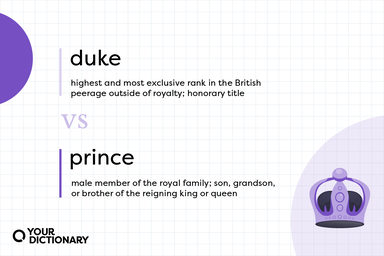The dukedom for which Arundel had petitioned Charles I.
He was not released until the accession of Mary, parliament restoring his dukedom on his petition for reversal of the attainder.
He retained, however, his dukedom and estates.
The head of her elder brother, the boy earl marshal, had been stricken off in the cornfield under the walls of York, but her younger brother's right to his father's dukedom was allowed by parliament in 1425.
Of its illegitimate descendants the house of Cornwall was founded by Richard, a natural son of Richard, king of the Romans and earl of Cornwall, who was ancestor of Lord Cornewall of Fanhope, temp. Henry VI., of the Cornewalls, " barons of Burford," and other families; but the principal house is that which was founded, at a later date, by Sir Charles Somerset, natural son of Henry (Beaufort) duke of Somerset (beheaded 1464), who was created earl of Worcester in 1513, and whose descendant Henry, marquess and earl of Worcester, obtained the dukedom of Beaufort in 1682.
